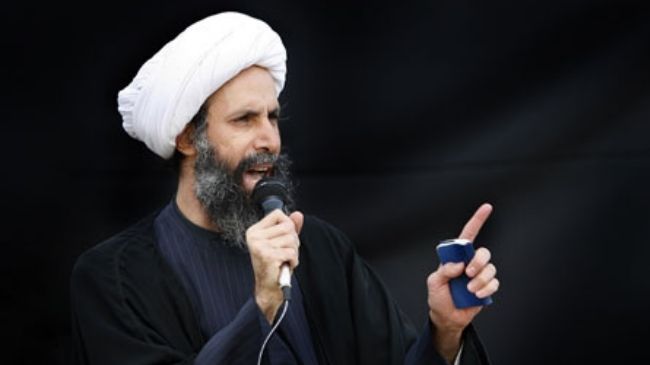Monday 11 May 2015
Special Procedures Branch
Office of the High Commissioner for Human Rights
c/o OHCHR-UNOG
8-14 Avenue de la Paix
1211 Geneva 10
Switzerland
Sent by email to: urgent-action@ohchr.org
Dear Sir or Madam,
RE Sheikh NimrBaqir al-Nimr’s execution (Saudi Arabia)
We are deeply concerned about the planned execution of Sheikh NimrBaqir al-Nimr in Saudi Arabia, a leading Islamic scholar for whom the Islamic Human Rights Commission (IHRC)has consistently campaigned following his arrest in 2012. It appears his execution is imminent, and therefore your intervention is required as a matter of urgency.
Sheikh al-Nimr was arrested on baseless charges of apostasy and terrorism, when in reality it was his calls for equality and reform in Saudi Arabia and his outspoken criticism of the Saudi monarchy that has deemed him a threat to the regime.
Given that the OHCHR has in the past expressed grave concerns over Saudi Arabia’s use of the death penalty, IHRC calls on the OHCHR to do all that is necessary to put pressure on the Saudi government to stay his execution and to secure his release. It is a severe blight on the reputation of this office if it is not able to work to protect the rights of individuals to free speech, to protest, to practice their religion, to a fair trial, to not be subjected to torture, and the right to life.
Sheikh al-Nimr was detained in 2012 following a police pursuit in Eastern Province of Qatifdistrict which ended with him being shot in the leg four times in disputed circumstances. Officials said he rammed a security forces vehicle, leading to a gun battle. However, his family has disputed the allegation that he resisted arrest and insist that he did not own a weapon.
The history of the cleric’s case saw him held for eight months before being charged and reportedly spent the first four in an isolation cell at a prison hospital in Riyadh. He has been severely tortured in detention. Sheikh Nimr has only ever supported peaceful protests in his opposition to the government.
As a key figure within the opposition movement in Saudi Arabia, his planned execution is also illustrative of the government’s crackdown on all opposition to its authoritarian regime. IHRC’s research from 2011 (the beginning of the demonstrations in the Shi’a majority Eastern Province) indicates that there are an estimated 30,000 political prisoners in Saudi Arabia out of a population of approximately 18 million Saudi nationals.Whilst the 30,000 political prisoners are drawn from different sections of Saudi society, the government uses the arrest of personalities like Sheikh Nimr to sectarianize the opposition to the regime. Such divisive tactics allow them to silence all those who speak out against them.
The Specialised Criminal Court, Saudi Arabia’s terrorism tribunal, which handed down the sentence, has been widely criticised for abandoning a system of due process, issuing charges that do not resemble recognisable crimes, and denying access to lawyers at arrest and during pre-trial detention, making it almost impossible to prepare cases for trial. The court has also been criticised for dismissing without investigation allegations of torture and admitting as evidence confessions that defendants said were coerced.
Sheikh al-Nimr has been active in demanding more liberty, constitutional changes and an end to sectarian discrimination in the country. His arrest, detention and planned execution are set against the backdrop of the increasing violence and authoritarianism of the Saudi state that seeks to marginalise and abuse minority groups in particular.
The severity of his treatment and the complete violation of his human rights highlights his case to be one of extreme importance to the OHCHR, and we trust all necessary steps will be taken to secure his immediate release.
Yours faithfully,
Massoud Shadjareh
Chair







